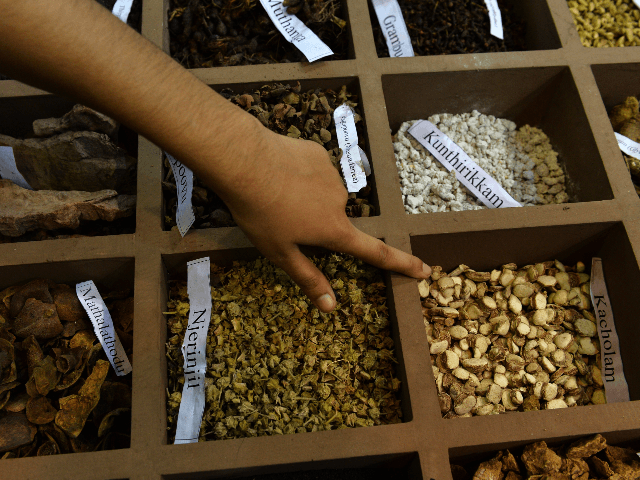The Indian Medical Association (IMA) on Friday criticized the Ministry of Ayurveda, Yoga & Naturopathy, Unani, Siddha, Sowa Rigpa and Homeopathy (AYUSH) for recommending homeopathic treatments to combat the Wuhan coronavirus.
The IMA said it was “immature, premature, and irresponsible” to promote untested homeopathic remedies against the rapidly spreading epidemic, which reached India this week.
The “ayurveda” referenced in AYUSH’s name is a form of Hindu holistic medicine. “Unani” is an ancient Greek system of alternative medicine, including herbal treatments and special diets, that is now practiced primarily in India. “Siddha” is a very old Indian mystical discipline viewed with particular skepticism by the country’s medical community. “Sowa rigpa” is a Tibetan school of holistic medicine.
AYUSH is an Indian government ministry that has existed under various names since 1995, evolving into its current title and mission scope in 2014. Its goal was to recognize the popularity of alternative medicine in India, bring some academic rigor to the most popular disciplines, and reconcile their beliefs with modern medicine. The Indian medical community tends to view AYUSH as a regrettable effort to legitimize quackery, especially when increased government funding is devoted to the homeopathic ministry.
On Wednesday, AYUSH published an “advisory” for the coronavirus describing homeopathic remedies “useful in symptomatic management” of the epidemic. India’s first confirmed case of the Wuhan virus was reported the following day, a student in the southern state of Kerala who had recently returned from Wuhan University in China.
Some of the recommendations in the AYUSH advisory were common bits of advice for reducing contamination risk that would be given by any doctor, such as recommendations to clean and disinfect frequently, wear a mask in public places, and “avoid close contact with people who are sick.”
The “prophylactic” measures based on ayurveda and unani prescribed by AYUSH attracted stern criticism for the IMA, since they included herbal mixtures and homeopathic practices that have not been clinically tested.
“We specifically think the AYUSH ministry going to town with such recommendations for an outbreak of such global nature is immature, premature and irresponsible – particularly at a time when it’s a public health emergency and the first case is already reported in Kerala and India is ripped open,” said IMA Secretary-General Dr. RV Asokan.
Dr. Asokan sarcastically wondered why “systems of medicines which do not even recognize microbes as disease-causing agents” would claim they can treat infections.
A heated argument erupted on social media between alternative medicine supporters and critics. Some critics who are normally indulgent of homeopathy expressed alarm that a government ministry would promote it as effective against the highly contagious Wuhan virus. Among the dangers is that the disciplines promoted by AYUSH tend to be viewed by adherents as ancient secrets whose power baffles modern science, so people following the advice given in the advisory bulletin might believe they have gained some supernatural degree of resistance to the coronavirus.
The defense offered by an alternative-medicine advocate to the South China Morning Post would probably do little to alleviate the IMA’s concerns. The Post reported:
However, Dr Piyush Joshi, secretary general of the Homeopathic Medical Association of India, which is independent of AYUSH, defended the use of homeopathic therapies, saying in an interview that they had “a proven track record of being very effective for prophylactic effect in epidemic diseases”.
Asked about the possible side-effects of the recommended treatment for the coronavirus – a highly diluted solution of arsenic trioxide used by homoeopaths that has in the past resulted in arsenic poisoning due to negligence – Joshi said the suggested quantity would not have serious consequences.
“The fortunate part about homoeopathy is, one need not worry much about the type of virus,” Joshi claimed. “Through the generalised symptoms of all the patients, we’ll be able to find an effective remedy” for any virus that can be used as “a preventive medication for all the population.”
AYUSH appeared to back away from its advisory late on Wednesday, explaining that the bulletin was meant as a “preventive measure” and not “treatment advice” for patients dealing with coronavirus infections.

COMMENTS
Please let us know if you're having issues with commenting.